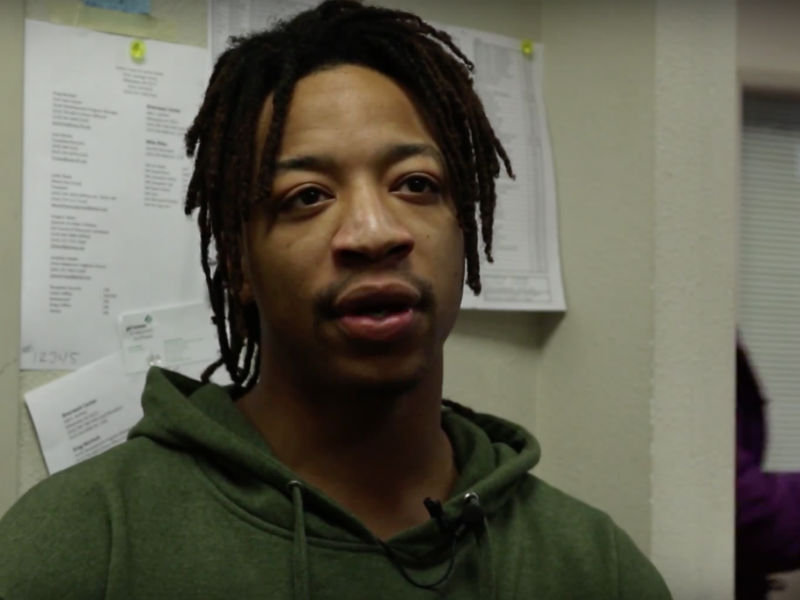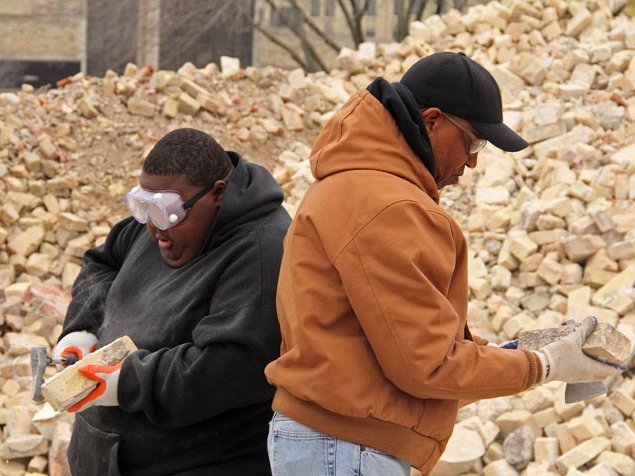 Few things are more important than the well-being of a child. Many kids in Milwaukee are in desperate need of someone to look up to, and through various mentoring programs in town, you can get involved and make a positive difference in the life of a child.
Few things are more important than the well-being of a child. Many kids in Milwaukee are in desperate need of someone to look up to, and through various mentoring programs in town, you can get involved and make a positive difference in the life of a child.
Milwaukee Mentors supplies a list of qualities that make a good mentor, including being a trusted friend, a guide, a good listener, a responsive, reliable adult and a partner to parents, teachers and other influential adults in a child's life.
It's also important to note the things a mentor is not. They are not a savior, foster parent, therapist, parole officer or a cool peer.
If you think mentoring is for you, there are other things to consider. What types of activities interest you? Are you looking to just be a friend or more than that? What age group would you like to work with? How much time do you have? Be realistic about the responsibilities that come with being a mentor. Most of all, young people are looking for reliability.
Milwaukee Mentors helps people decide what mentoring program is best for them. The organization is comprised of local youth-serving associations that operate mentoring programs. Milwaukee Mentors provides information on the programs so that an individual can choose which one meets your interests and schedule.
There is no question that mentoring works. According to statistics, mentored teens are 46% less likely to get into drugs; 59% get better grades; 73 % raise their goals. To learn more, call (414) 274-0828.
Sponsor-A-Scholar also offers a mentoring program. Volunteers are paired with a student from the City of Milwaukee who would otherwise not have the mentoring support or financial means to attend college. There are three options for participants: mentor, sponsor or both.
A mentor aids the student through academic guidance, shared community activities, exposure to the working world and accessing community resources.
Unfortunately, many low-income students cannot afford college. Sponsors help provide a financial foundation for a student's college dream. A sponsor makes a tax-deductible initial investment of $4,500 or $1,250 for each year of high school, ensuring a guaranteed $5,000 college expense fund.
A variety of sponsor/mentor combinations are possible. Individuals and organizations can sponsor and/or mentor a student. Businesses may sponsor and mentor. A professional or trade group may sponsor one student or a number of students.
For more information about Sponsor-A-Scholar call (414) 274-0820.
Big Brothers, Big Sisters is another mentoring organization that serves the Milwaukee area. Their goal is to provide a professionally-supported relationship between children from primarily single-parent families and adult volunteers.
Big Brothers, Big Sisters is looking for all types volunteers: singles, couples, seniors, college students, support staff and financial contributors. Michelle Sweeney, Director of PR and Marketing, stressed the need for male volunteers.
"Right now there is a shortage of male volunteers," Sweeney notes.
"We have volunteers ranging from 18 to 65, and we just started to let high school students mentor," Sweeney adds. "Currently, mentoring is especially popular with college students and young professionals. They recognize the need to give back to the community, it's fun and it's a great resume builder."
 There are plenty of volunteer opportunities at Big Brothers, Big Sisters. In addition to being a big brother or big sister, in which a person is matched with a child of the same gender for a minimum of one year, there's also First Friends, Sports Buddies, School Based Mentoring, Couple/Family, a Marquette Branch Program, Joint Programming and an Activities Committee.
There are plenty of volunteer opportunities at Big Brothers, Big Sisters. In addition to being a big brother or big sister, in which a person is matched with a child of the same gender for a minimum of one year, there's also First Friends, Sports Buddies, School Based Mentoring, Couple/Family, a Marquette Branch Program, Joint Programming and an Activities Committee.
First Friends pairs a female volunteer with a boy under the age of 11. Sports buddies matches a male volunteer with a child from the agency waiting list. They go on a recreational outing at least twice a month. School based mentoring involves pairing a volunteer with a child at a school. Couple/Family allows a married couple (and children as relevant) to include a child in their family activities a few times a month for at least a year.
The Marquette Branch Program matches a student with a child of either gender for one school year. Joint Programming is a specialized program that matches volunteers from a community group with a special population of children. Finally, the Activities Committee meets once a month to plan fun activities for all of the children involved in the program.
To prove that the program works, a program development and research organization called Public and Private Ventures studied nearly 1,000 10-16 year-olds who applied to the Big Brothers, Big Sisters program for a 12-18 month period.
The study shows that the kids who met regularly with their Big Brother or Big Sister were less likely to start using drugs and alcohol, were less likely to engage in violent behavior, improved their school attendance, grades and attitude toward schoolwork and improved their peer and family relationships.
Each successful adult/child match is made through a process of interviews, matching, training and supervising. For more information about Big Brothers, Big Sisters call (414) 258-4778 or visit www.bigbrothers-bigsisters.com.
Lyn Bienert, a mentor since 1994, volunteered for Big Brothers, Big Sisters after his own child grew up and left the house and has found it to be a rewarding experience.
"I wanted to get involved with kids again," he says. "And it's been a great experience. We see each other once a week and participate in activities sponsored by Big Brothers, Big Sisters and do are own things as well. It's like he's part of the family."
Of course, there are more mentoring programs in the Milwaukee area, but this is a good sampling and should help you get started. What are you waiting for? Get out there and start making a difference.







